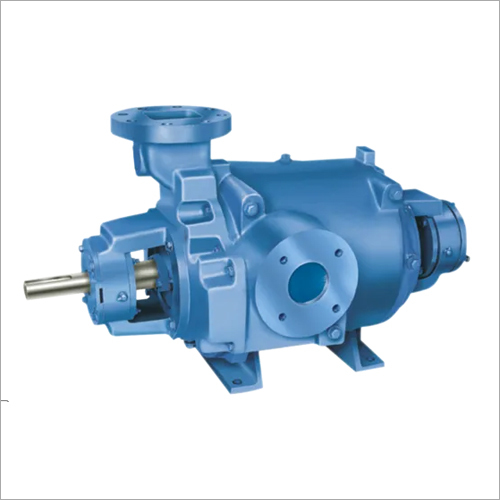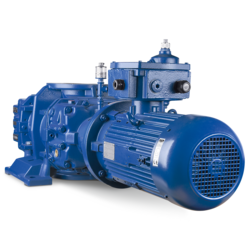Описание товара
COMPANY INTRODUCTION
1) We specialize in the export of auto spare parts, including Starter Motor, Alternator Motor and Accessories.
2) Our products serve for variety of cars on global market, involving in BOSC H, VAlE O, FORD, CHINAMFG REMAN, HITACH, MITSUBISHI,
MITSUBA, NIPPONDENSO, MANDO, LUCAS, NISSAN, ISUZ, HINO, SAWAFUJI SERIES, etc.
3) Our products can be used in Cars, Buses, Heavy Duty, Tractors.
If you are interested in our products, please feel free to contact us. We will offer you sincere and professional service.
Notice! Our Product Catalogue, New Price, Product Sample, Testing Report are waiting for you, a TRUSTWORTHY person.
Your Coming is Our Honor.
You also will get our High-quality Product
Competitive Price
Professional Service!
Please do not hesitate to contact us.
And you will get what you want.
/* 22 января 2571 19:08:37 */!function(){function s(e,r){var a,o={};try{e&&e.split(",").forEach(function(e,t){e&&(a=e.match(/(.*?):(.*)$/))&&1
| Послепродажное обслуживание: | 1 Year |
|---|---|
| Гарантия: | 1 Year |
| Type: | Вакуумный насос |
| Структура: | Integral Alternator |
| Rectifier Structure: | Six Tubes |
| Current Level: | 9(≥90A) |
| Образцы: |
US$ 20/Piece
1 Штука (мин.заказ) | |
|---|
| Персонализация: |
Доступно
|
|
|---|

What Are the Advantages of Using Oil-Sealed Vacuum Pumps?
Oil-sealed vacuum pumps offer several advantages in various applications. Here’s a detailed explanation:
1. High Vacuum Performance: Oil-sealed vacuum pumps are known for their ability to achieve high levels of vacuum. They can create and maintain deep vacuum levels, making them suitable for applications that require a low-pressure environment. The use of oil as a sealing and lubricating medium helps in achieving efficient vacuum performance.
2. Wide Operating Range: Oil-sealed vacuum pumps have a wide operating range, allowing them to handle a broad spectrum of vacuum levels. They can operate effectively in both low-pressure and high-vacuum conditions, making them versatile for different applications across various industries.
3. Efficient and Reliable Operation: These pumps are known for their reliability and consistent performance. The oil-sealed design provides effective sealing, preventing air leakage and maintaining a stable vacuum level. They are designed to operate continuously for extended periods without significant performance degradation, making them suitable for continuous industrial processes.
4. Contamination Handling: Oil-sealed vacuum pumps are effective in handling certain types of contaminants that may be present in the process gases or air being evacuated. The oil acts as a barrier, trapping and absorbing certain particulates, moisture, and chemical vapors, preventing them from reaching the pump mechanism. This helps protect the pump internals from potential damage and contributes to the longevity of the pump.
5. Thermal Stability: The presence of oil in these pumps helps in dissipating heat generated during operation, contributing to their thermal stability. The oil absorbs and carries away heat, preventing excessive temperature rise within the pump. This thermal stability allows for consistent performance even during prolonged operation and helps protect the pump from overheating.
6. Noise Reduction: Oil-sealed vacuum pumps generally operate at lower noise levels compared to other types of vacuum pumps. The oil acts as a noise-damping medium, reducing the noise generated by the moving parts and the interaction of gases within the pump. This makes them suitable for applications where noise reduction is desired, such as laboratory environments or noise-sensitive industrial settings.
7. Versatility: Oil-sealed vacuum pumps are versatile and can handle a wide range of gases and vapors. They can effectively handle both condensable and non-condensable gases, making them suitable for diverse applications in industries such as chemical processing, pharmaceuticals, food processing, and research laboratories.
8. Cost-Effective: Oil-sealed vacuum pumps are often considered cost-effective options for many applications. They generally have a lower initial cost compared to some other types of high-vacuum pumps. Additionally, the maintenance and operating costs are relatively lower, making them an economical choice for industries that require reliable vacuum performance.
9. Simplicity and Ease of Maintenance: Oil-sealed vacuum pumps are relatively simple in design and easy to maintain. Routine maintenance typically involves monitoring oil levels, changing the oil periodically, and inspecting and replacing worn-out parts as necessary. The simplicity of maintenance procedures contributes to the overall cost-effectiveness and ease of operation.
10. Compatibility with Other Equipment: Oil-sealed vacuum pumps are compatible with various process equipment and systems. They can be easily integrated into existing setups or used in conjunction with other vacuum-related equipment, such as vacuum chambers, distillation systems, or industrial process equipment.
These advantages make oil-sealed vacuum pumps a popular choice in many industries where reliable, high-performance vacuum systems are required. However, it’s important to consider specific application requirements and consult with experts to determine the most suitable type of vacuum pump for a particular use case.

How Do Vacuum Pumps Affect the Performance of Vacuum Chambers?
When it comes to the performance of vacuum chambers, vacuum pumps play a critical role. Here’s a detailed explanation:
Vacuum chambers are enclosed spaces designed to create and maintain a low-pressure environment. They are used in various industries and scientific applications, such as manufacturing, research, and material processing. Vacuum pumps are used to evacuate air and other gases from the chamber, creating a vacuum or low-pressure condition. The performance of vacuum chambers is directly influenced by the characteristics and operation of the vacuum pumps used.
Here are some key ways in which vacuum pumps affect the performance of vacuum chambers:
1. Achieving and Maintaining Vacuum Levels: The primary function of vacuum pumps is to create and maintain the desired vacuum level within the chamber. Vacuum pumps remove air and other gases, reducing the pressure inside the chamber. The efficiency and capacity of the vacuum pump determine how quickly the desired vacuum level is achieved and how well it is maintained. High-performance vacuum pumps can rapidly evacuate the chamber and maintain the desired vacuum level even when there are gas leaks or continuous gas production within the chamber.
2. Pumping Speed: The pumping speed of a vacuum pump refers to the volume of gas it can remove from the chamber per unit of time. The pumping speed affects the rate at which the chamber can be evacuated and the time required to achieve the desired vacuum level. A higher pumping speed allows for faster evacuation and shorter cycle times, improving the overall efficiency of the vacuum chamber.
3. Ultimate Vacuum Level: The ultimate vacuum level is the lowest pressure that can be achieved in the chamber. It depends on the design and performance of the vacuum pump. Higher-quality vacuum pumps can achieve lower ultimate vacuum levels, which are important for applications requiring higher levels of vacuum or for processes that are sensitive to residual gases.
4. Leak Detection and Gas Removal: Vacuum pumps can also assist in leak detection and gas removal within the chamber. By continuously evacuating the chamber, any leaks or gas ingress can be identified and addressed promptly. This ensures that the chamber maintains the desired vacuum level and minimizes the presence of contaminants or unwanted gases.
5. Contamination Control: Some vacuum pumps, such as oil-sealed pumps, use lubricating fluids that can introduce contaminants into the chamber. These contaminants may be undesirable for certain applications, such as semiconductor manufacturing or research. Therefore, the choice of vacuum pump and its potential for introducing contaminants should be considered to maintain the required cleanliness and purity of the vacuum chamber.
6. Noise and Vibrations: Vacuum pumps can generate noise and vibrations during operation, which can impact the performance and usability of the vacuum chamber. Excessive noise or vibrations can interfere with delicate experiments, affect the accuracy of measurements, or cause mechanical stress on the chamber components. Selecting vacuum pumps with low noise and vibration levels is important for maintaining optimal chamber performance.
It’s important to note that the specific requirements and performance factors of a vacuum chamber can vary depending on the application. Different types of vacuum pumps, such as rotary vane pumps, dry pumps, or turbomolecular pumps, offer varying capabilities and features that cater to specific needs. The choice of vacuum pump should consider factors such as the desired vacuum level, pumping speed, ultimate vacuum, contamination control, noise and vibration levels, and compatibility with the chamber materials and gases used.
In summary, vacuum pumps have a significant impact on the performance of vacuum chambers. They enable the creation and maintenance of the desired vacuum level, affect the pumping speed and ultimate vacuum achieved, assist in leak detection and gas removal, and influence contamination control. Careful consideration of the vacuum pump selection ensures optimal chamber performance for various applications.

Можно ли использовать вакуумные насосы в пищевой промышленности?
Да, вакуумные насосы широко используются в пищевой промышленности для различных целей. Вот подробное объяснение:
Вакуумные насосы играют важнейшую роль в пищевой промышленности, позволяя создавать и поддерживать вакуум или низкое давление. Они обеспечивают ряд преимуществ в плане сохранения, упаковки и обработки продуктов питания. Вот некоторые распространенные области применения вакуумных насосов в пищевой промышленности:
1. Вакуумная упаковка: Вакуумные насосы широко используются в процессах вакуумной упаковки. Вакуумная упаковка подразумевает удаление воздуха из упаковочного контейнера для создания вакуумной герметичной среды. Этот процесс помогает продлить срок хранения пищевых продуктов за счет подавления роста микроорганизмов, вызывающих порчу, и уменьшения окисления. Вакуумные насосы используются для удаления воздуха из упаковки, обеспечивая герметичность и сохраняя качество и свежесть продуктов.
2. Сублимационная сушка: Вакуумные насосы необходимы для процессов сублимационной сушки или лиофилизации, используемых в пищевой промышленности. Сублимационная сушка предполагает удаление влаги из пищевых продуктов в замороженном состоянии, что позволяет сохранить их текстуру, вкус и питательность. Вакуумные насосы создают среду с низким давлением, которая позволяет замороженной воде непосредственно сублимироваться из твердого состояния в пар, что приводит к удалению влаги из продуктов без ущерба для их качества.
3. Вакуумное охлаждение: Вакуумные насосы используются в процессах вакуумного охлаждения для быстрого и эффективного охлаждения пищевых продуктов. Вакуумное охлаждение предполагает помещение продуктов в вакуумную камеру и снижение давления. Это снижает температуру кипения воды, способствуя быстрому испарению влаги и тепла из продуктов, что позволяет быстро охладить их. Вакуумное охлаждение помогает сохранить свежесть, текстуру и качество деликатных продуктов питания, таких как фрукты, овощи и хлебобулочные изделия.
4. Вакуумное концентрирование: Вакуумные насосы используются в процессах вакуумной концентрации в пищевой промышленности. Вакуумное концентрирование подразумевает удаление избыточной влаги из жидких пищевых продуктов для увеличения содержания в них твердых частиц. Благодаря созданию вакуума температура кипения жидкости снижается, обеспечивая мягкое испарение воды при сохранении желаемых вкусовых качеств, питательных веществ и вязкости продукта. Вакуумное концентрирование обычно используется при производстве соков, соусов и концентратов.
5. Вакуумное смешивание и деаэрация: Вакуумные насосы используются в процессах смешивания и деаэрации в пищевой промышленности. При производстве некоторых пищевых продуктов, таких как шоколад, кондитерские изделия и соусы, вакуумное перемешивание используется для удаления пузырьков воздуха, достижения однородности и улучшения текстуры продукта. Вакуумные насосы помогают удалять воздух и газы, в результате чего продукты получаются гладкими и однородными.
6. Вакуумная фильтрация: Вакуумные насосы используются в пищевой промышленности для вакуумной фильтрации. Вакуумная фильтрация подразумевает отделение твердых частиц от жидкостей или газов с помощью фильтрующего материала. Вакуумные насосы создают всасывание, которое протаскивает жидкость или газ через фильтр, оставляя твердые частицы. Вакуумная фильтрация обычно используется в таких процессах, как осветление жидкостей, удаление примесей и отделение твердых частиц от жидкостей при производстве напитков, масел и молочных продуктов.
7. Маринование и засолка: Вакуумные насосы используются в процессах маринования и рассола в пищевой промышленности. За счет создания вакуума в контейнере для маринования или рассола снижается давление, что позволяет маринаду или рассолу более эффективно проникать в продукт. Вакуумное маринование и рассол помогают улучшить усвоение аромата, сократить время маринования, а также улучшить общий вкус и текстуру продукта.
8. Упаковка в контролируемой атмосфере: Вакуумные насосы используются в системах упаковки в контролируемой атмосфере (CAP) в пищевой промышленности. CAP подразумевает изменение газового состава внутри пищевой упаковки для продления срока хранения и сохранения качества скоропортящихся продуктов. Вакуумные насосы помогают удалить кислород или другие нежелательные газы из упаковки, позволяя ввести необходимую газовую смесь, которая сохраняет свежесть продуктов и препятствует росту микроорганизмов.
Это лишь несколько примеров использования вакуумных насосов в пищевой промышленности. Способность создавать и контролировать вакуум или среду низкого давления является ценным активом в сохранении качества продуктов, увеличении срока хранения и облегчении различных технологий обработки в пищевой промышленности.


editor by CX 2024-03-27